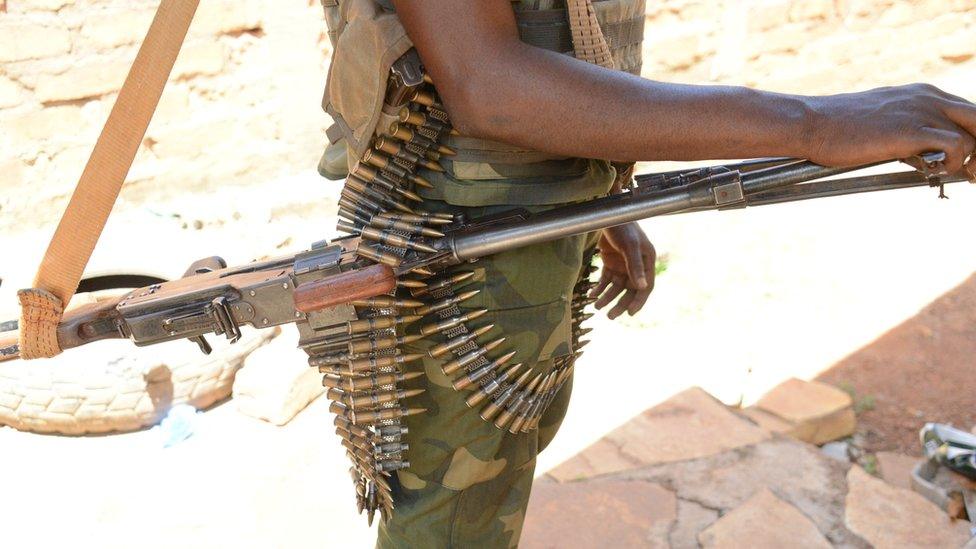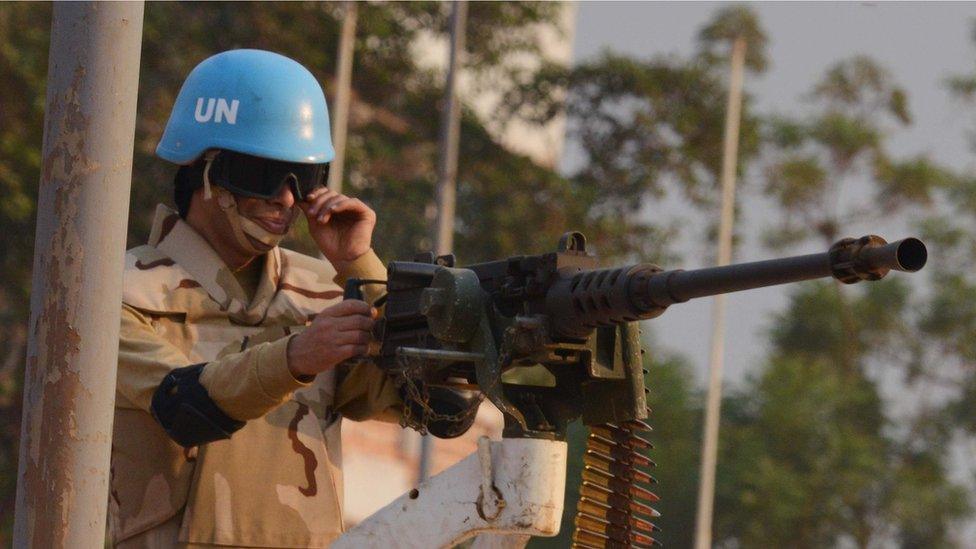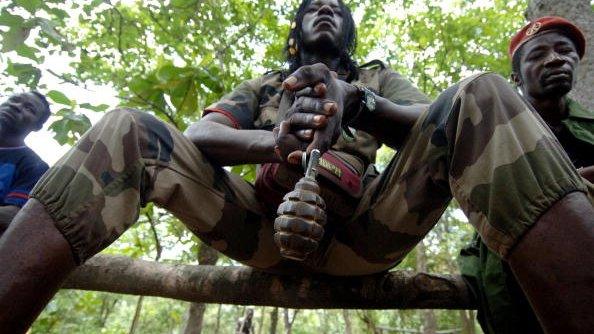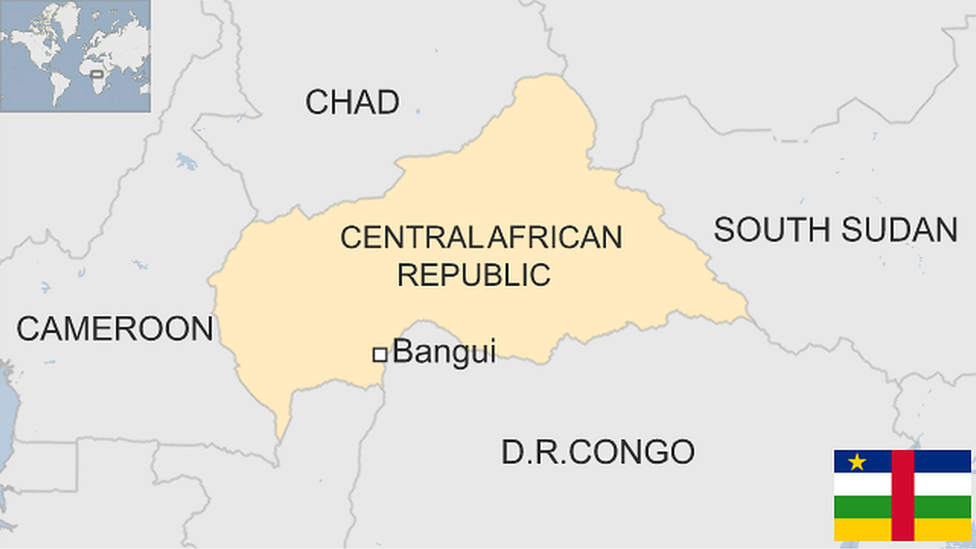US sanctions for CAR warlords
- Published

Rival militias having been fighting for territory in CAR
The US has imposed financial sanctions on two militia leaders accused of fuelling conflict in the Central African Republic (CAR).
The sanctions against the two men, who come from rival sides in the conflict, underscored the US's determination to tackle instability in the CAR, the US Treasury said in a statement, external.
Any assets they have in the US will be frozen, the statement added.
The CAR has been wracked by ethnic and religious conflict since 2013.
The US Treasury also said that US citizens would be barred from doing business with Abdoulaye Hissene and Maxime Mokom.
Mr Hissene is a chief of the mainly Muslim Seleka rebels and Mr Mokom is a leader in the largely Christian anti-Balaka militia.
The Treasury said they were "specifically" identified as suspects in the failed coup against then-interim President Catherine Samba-Panza in 2015.
They are also accused of conspiring to disrupt a referendum held on a new constitution in the same year, the Treasury added.
'Gold dealer'
Ruben de Koning of US-based research group The Sentry,, external which analyses the financing of conflict in Africa, says sanctions serve a useful purpose by sending a "strong message" to armed leaders.
Mr Koning says Mr Hissene has business dealings, including gold, and that while the warlords may not have assets in America, they might be carrying out business transactions through the US financial system that may be monitored and blocked.
Thousands have been killed and huge numbers of the population displaced during the four-year conflict.
Seleka briefly seized power in March 2013 after ousting then-President Francois Bozize, from the country's Christian majority.
It handed power to a transitional government in 2015, as the country descended into religious and ethnic conflict.
More than 12,000 UN peacekeepers are currently deployed in the country.
- Published15 February 2017

- Published11 January 2013

- Published22 August 2023
